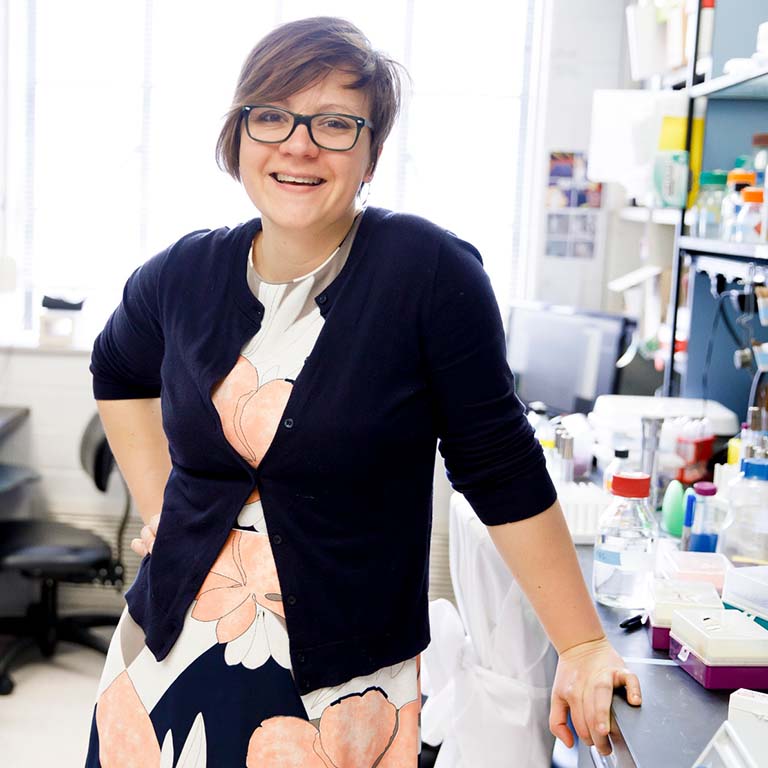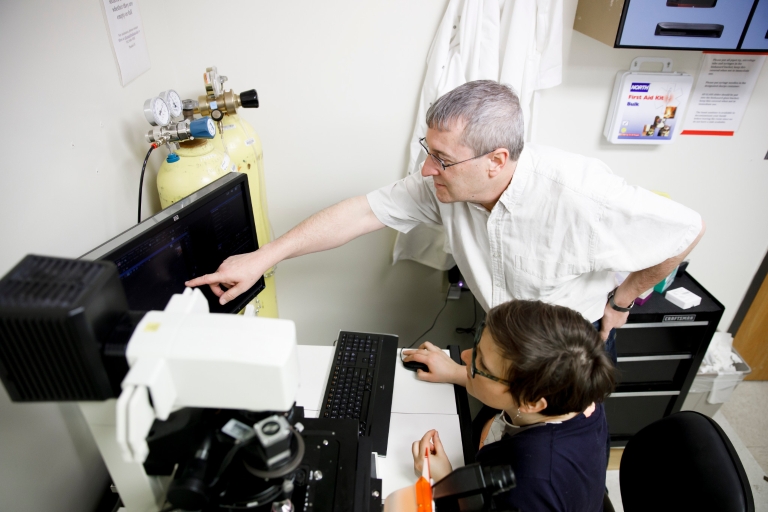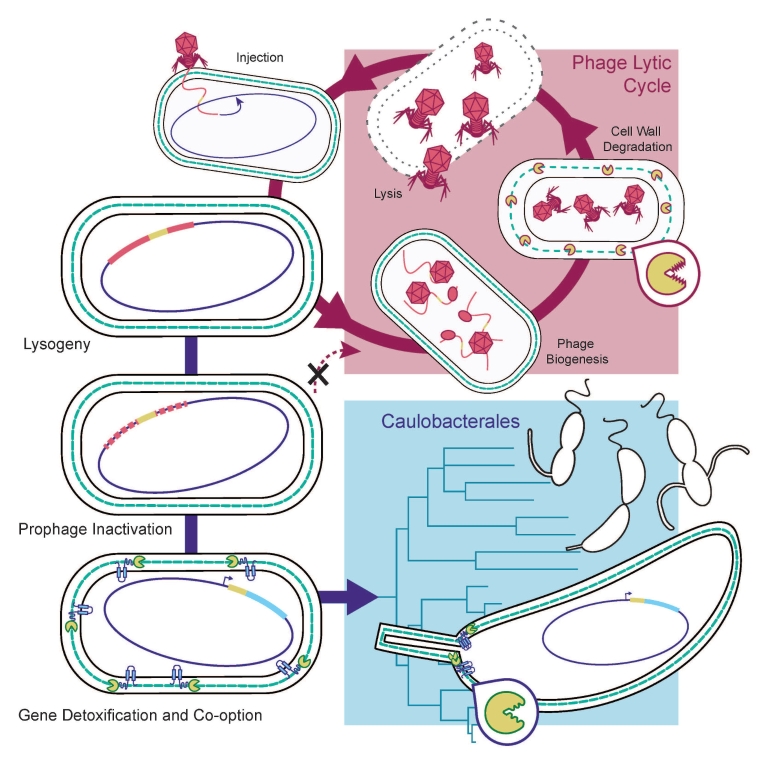An Indiana University study showing bacteria can evolve new genes from viral attackers could help advance research on bacterial resistance, other uses of bacteria
Researchers at Indiana University are reporting a previously unknown way that bacteria can develop new genes to evolve and adapt to threats, an insight that might advance efforts against "superbugs."
The study, published online today in the journal Current Biology, describes the first known evidence of bacteria stealing genetic material from their own worst enemy, called "phages," and transforming it to survive. Phages are bacterial viruses so lethal that they're estimated to kill about half of the bacteria in the world's oceans every two days.
"Just like we've got this ongoing war against bacteria, bacteria are fighting a constant war against bacteriophages, or 'phages,'" said the study's lead author, Amelia Randich, a postdoctoral researcher in the IU Bloomington College of Arts and Sciences' Department of Biology. "Our work found that a gene once used by phages as a weapon against bacteria is now used by bacteria to grow and divide correctly."



 The College of Arts
The College of Arts